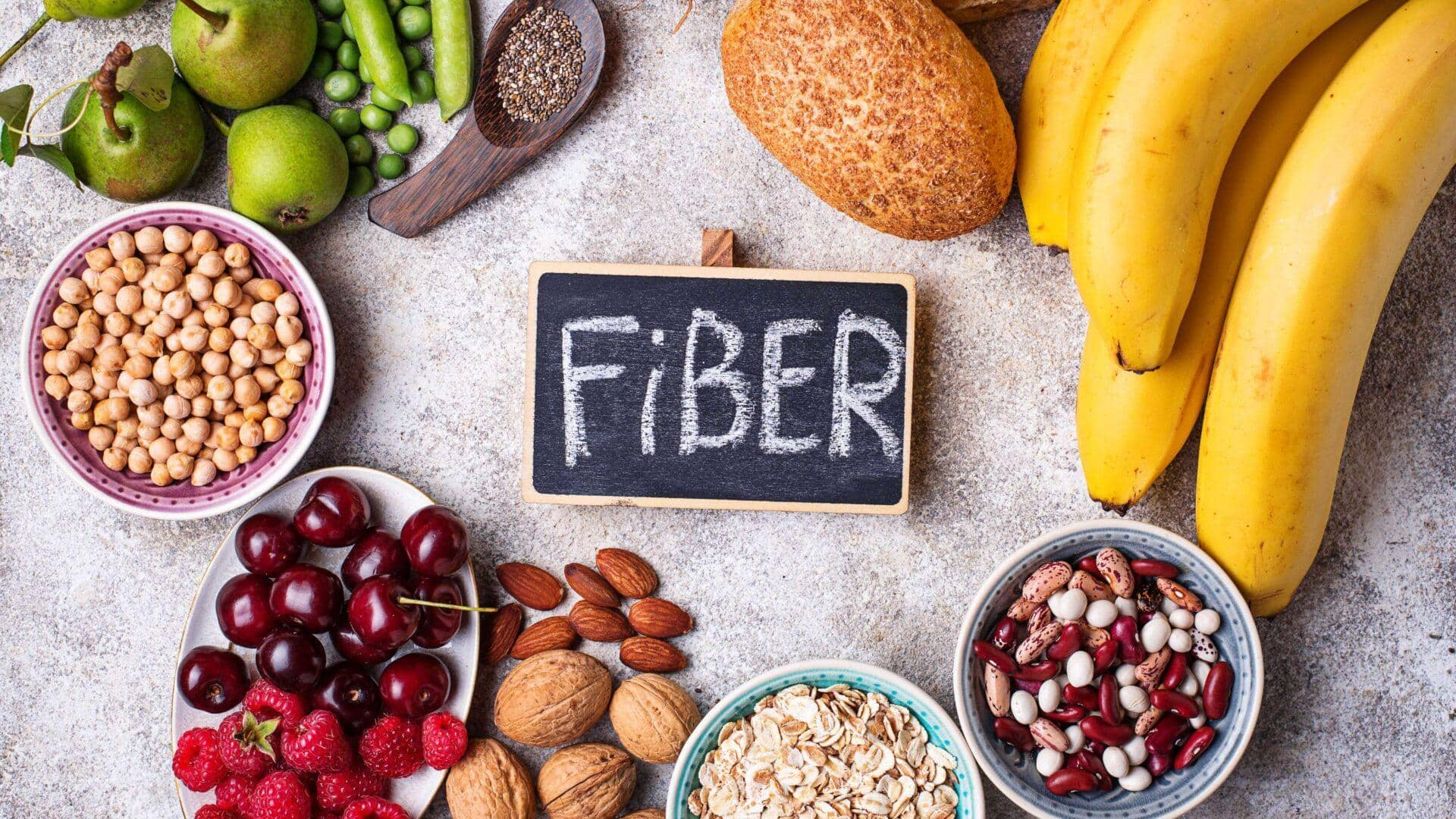
The truth about fiber and digestion: Myths busted
What's the story
Fiber is often hailed as the holy grail for digestive health. However, there are several misconceptions about it. While some believe that fiber is a cure-all for digestive issues, others think it can do more harm than good. Knowing the actual role of fiber in digestion can help you make informed dietary choices. Let's bust some common myths and understand how fiber really affects our digestive system.
Quantity misconception
Myth: More fiber equals better digestion
A common misconception is that more fiber means better digestion. In reality, too much fiber can cause bloating and discomfort. The trick is moderation; adults should consume around 25 to 30 grams of fiber each day from different sources like fruits, vegetables, and whole grains. Overdoing fiber intake without proper hydration can worsen digestive problems instead of solving them.
Fiber types
Myth: All fibers are the same
Not all fibers work the same way in our body. Soluble fibers dissolve in water and help control blood sugar levels, whereas insoluble fibers add bulk to stool and help with regular bowel movements. Both are important for good health but perform different roles in digestion. A healthy diet should have a combination of soluble and insoluble fibers for optimal digestive function.
Supplement limitations
Myth: Fiber supplements are sufficient
While fiber supplements can prove useful for those having a hard time hitting their daily intake through food alone, they shouldn't be relied upon completely. Whole foods offer additional nutrients, like vitamins and minerals, that supplements don't provide. Relying only on supplements can cause you to miss out on these vital nutrients, which are essential for maintaining overall health.
Misunderstood effects
Myth: Fiber causes constipation
Some avoid fiber because they think it causes constipation, when it actually prevents it by adding bulk to stool and promoting regularity. However, if you suddenly start eating more fiber without drinking enough water, it can cause temporary constipation or discomfort as your body adjusts. Gradually adding more high-fiber foods into your diet (and staying hydrated) is key to avoiding such issues.
Age consideration
Myth: Only adults need fiber
Fiber isn't just essential in adulthood, but at every stage of life. In fact, children also stand to gain from adequate fiber intake as it promotes healthy growth and development by aiding digestion and preventing constipation. Parents must encourage children to eat a host of high-fiber foods like fruits, vegetables, legumes, and whole grains as part of a balanced diet according to their age-specific needs.